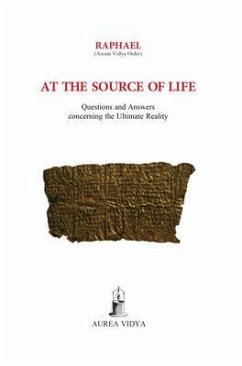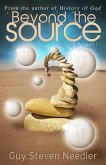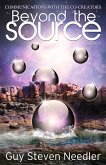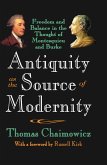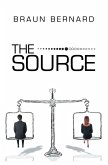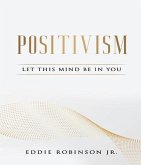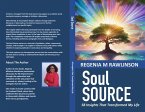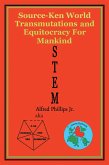The first part of At the Source of Life is presented in dialogue form. Wherever there is a question there is a void that needs to be filled, a lack of knowledge to be met, a doubt to be clarified, and hence a truth that needs only to be revealed, because since 'all is within ourselves', that truth, too, will be found in the depths of our being. With this certainty as his starting-point, Raphael often answers one question with another question, and with a skill akin to Socrates' maieutic art, obliges the questioner to retreat further and further into himself, until the answer he was seeking is brought forth into the light.
Looking at the subject-matter of the text, it depicts the whole of man's psychical and intellectual make-up, indicates his ideals, his deviations, and his weaknesses, traces his conflicts and sufferings to their causes, and at the same time iIn order to transform ourselves we must know and study ourselves, understand who our enemies are and fight them. Very often we are unable to recognize them and, sometimes, when we evaluate our mistakes, we tend to attribute to an object the importance that we should rather give to our reaction to it.
All philosophies have dealt with the problem of desire. Raphael offers a solution to the problem by identifying clearly, and above all with the aim of realization, the following steps: embracing the desire, mastering it, directing it, and transcending it: 'one who has transcended desire in all its forms is with the gods.'
Throughout the book there is continuous mention of the mind; one whole chapter is dedicated to the complexity of the mental processes, and the mind is seen as a limited tool for perceiving external data. Being unable to turn to face the knowing subject ('Nobody can dance on his own shoulders'), the mind begins its work of projection and creates the ego, time, space and causality, thus preventing us from knowing the Ultimate Reality. This is why we must reduce the mind to silence, but we are hindered by the crystallized subconscious accumulations which the past has produced within us. These are the 'wandering spectres', the 'ghosts which smell of death', from which we must liberate ourselves by means of a 'rectification', which will give us the possibility of eliminating all that makes us slaves of the past, and of correcting those discordancies and disharmonies that have distorted the harmony of our rhythms.
The questions and answers come to an end with the exhortation to remember that we are the Absolute and with the mention of Art as being the means to the transformation of ideas into colours, words, sounds etc. The less they are qualified by the ego, the closer they will be to perfection.
The second part of the book is entitled the 'Pathway of Fire' and contains a series of sutras or aphorisms, each of which is permeated by a vibrating and penetrating force which is far more than the beauty of its expression, for it aims to shake the reader out of his inertia and awaken him from his lethargy.
Raphael understands that only those who possess the necessary qualifications can undertake this path, since there are other paths that are well-suited to people's different individual qualifications. Yet he continues to repeat that today it is imperative to 'transform oneself'.
One must not think that these aphorisms are lyrical flights of fancy expressed in a poetical form which is an end in itself. This is the style of pure metaphysical realization, which aims at teaching you to observe the dying out of the last central Fire into which all the others have dissolved.
Looking at the subject-matter of the text, it depicts the whole of man's psychical and intellectual make-up, indicates his ideals, his deviations, and his weaknesses, traces his conflicts and sufferings to their causes, and at the same time iIn order to transform ourselves we must know and study ourselves, understand who our enemies are and fight them. Very often we are unable to recognize them and, sometimes, when we evaluate our mistakes, we tend to attribute to an object the importance that we should rather give to our reaction to it.
All philosophies have dealt with the problem of desire. Raphael offers a solution to the problem by identifying clearly, and above all with the aim of realization, the following steps: embracing the desire, mastering it, directing it, and transcending it: 'one who has transcended desire in all its forms is with the gods.'
Throughout the book there is continuous mention of the mind; one whole chapter is dedicated to the complexity of the mental processes, and the mind is seen as a limited tool for perceiving external data. Being unable to turn to face the knowing subject ('Nobody can dance on his own shoulders'), the mind begins its work of projection and creates the ego, time, space and causality, thus preventing us from knowing the Ultimate Reality. This is why we must reduce the mind to silence, but we are hindered by the crystallized subconscious accumulations which the past has produced within us. These are the 'wandering spectres', the 'ghosts which smell of death', from which we must liberate ourselves by means of a 'rectification', which will give us the possibility of eliminating all that makes us slaves of the past, and of correcting those discordancies and disharmonies that have distorted the harmony of our rhythms.
The questions and answers come to an end with the exhortation to remember that we are the Absolute and with the mention of Art as being the means to the transformation of ideas into colours, words, sounds etc. The less they are qualified by the ego, the closer they will be to perfection.
The second part of the book is entitled the 'Pathway of Fire' and contains a series of sutras or aphorisms, each of which is permeated by a vibrating and penetrating force which is far more than the beauty of its expression, for it aims to shake the reader out of his inertia and awaken him from his lethargy.
Raphael understands that only those who possess the necessary qualifications can undertake this path, since there are other paths that are well-suited to people's different individual qualifications. Yet he continues to repeat that today it is imperative to 'transform oneself'.
One must not think that these aphorisms are lyrical flights of fancy expressed in a poetical form which is an end in itself. This is the style of pure metaphysical realization, which aims at teaching you to observe the dying out of the last central Fire into which all the others have dissolved.
Dieser Download kann aus rechtlichen Gründen nur mit Rechnungsadresse in A, D ausgeliefert werden.

